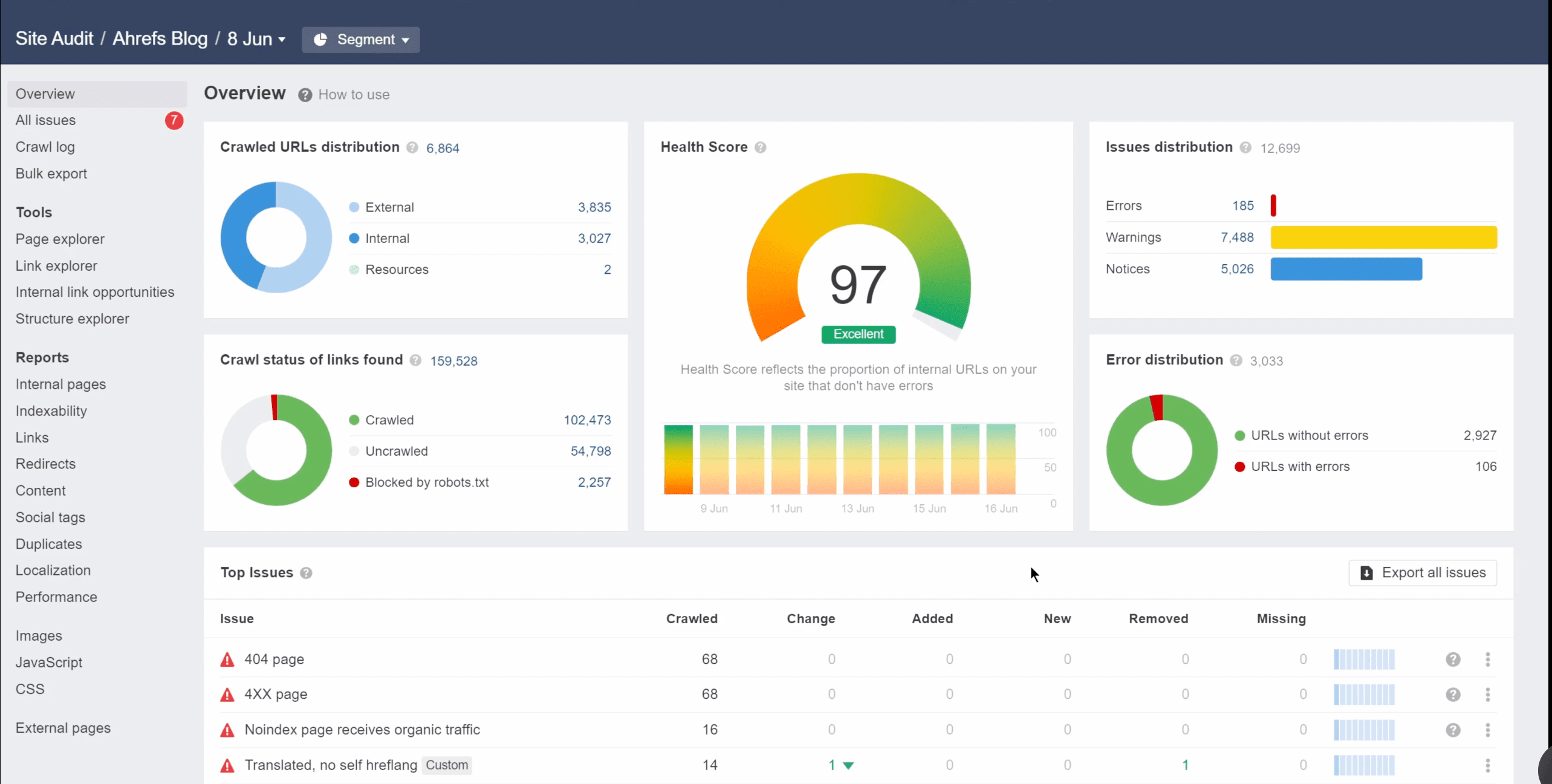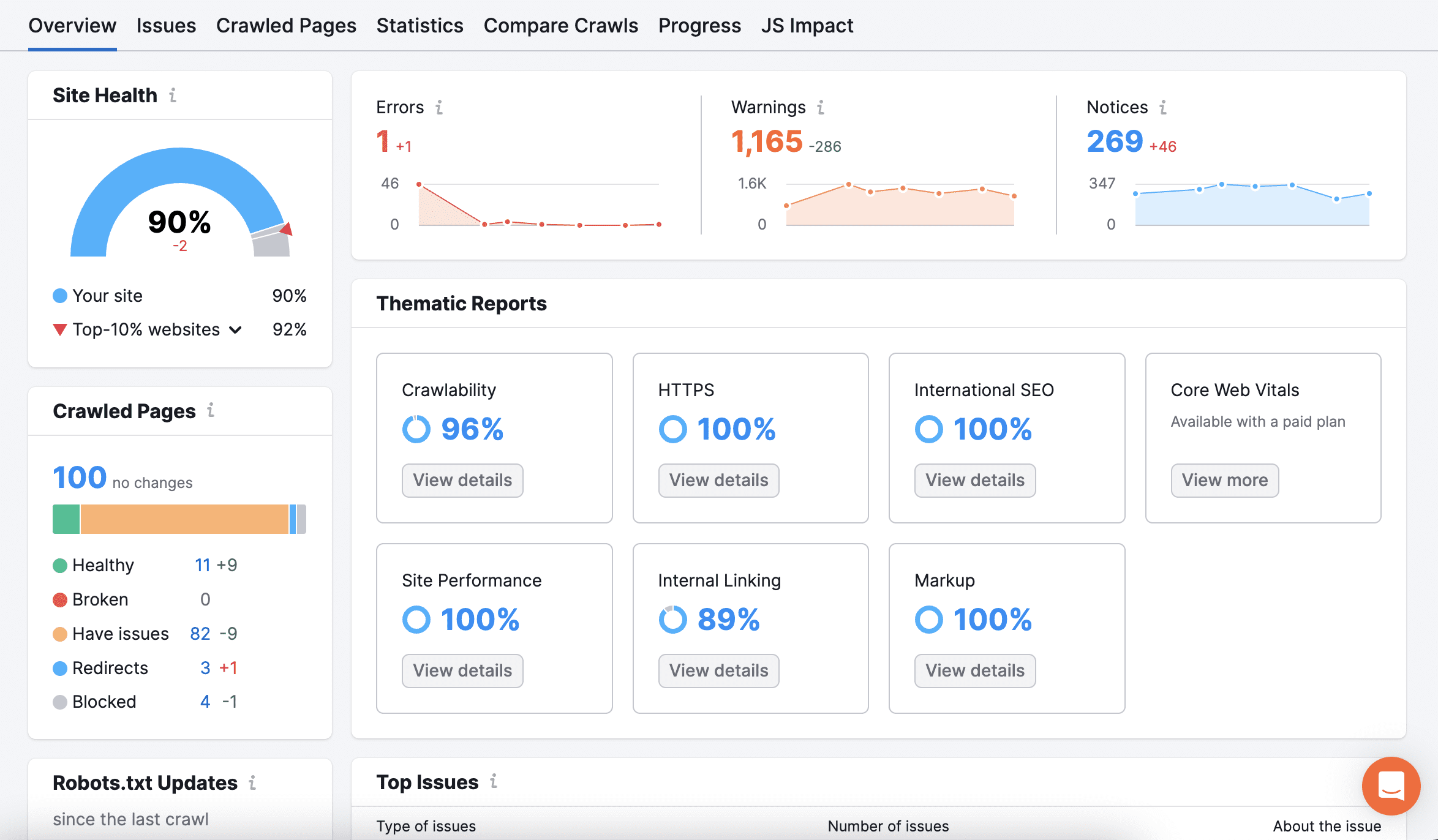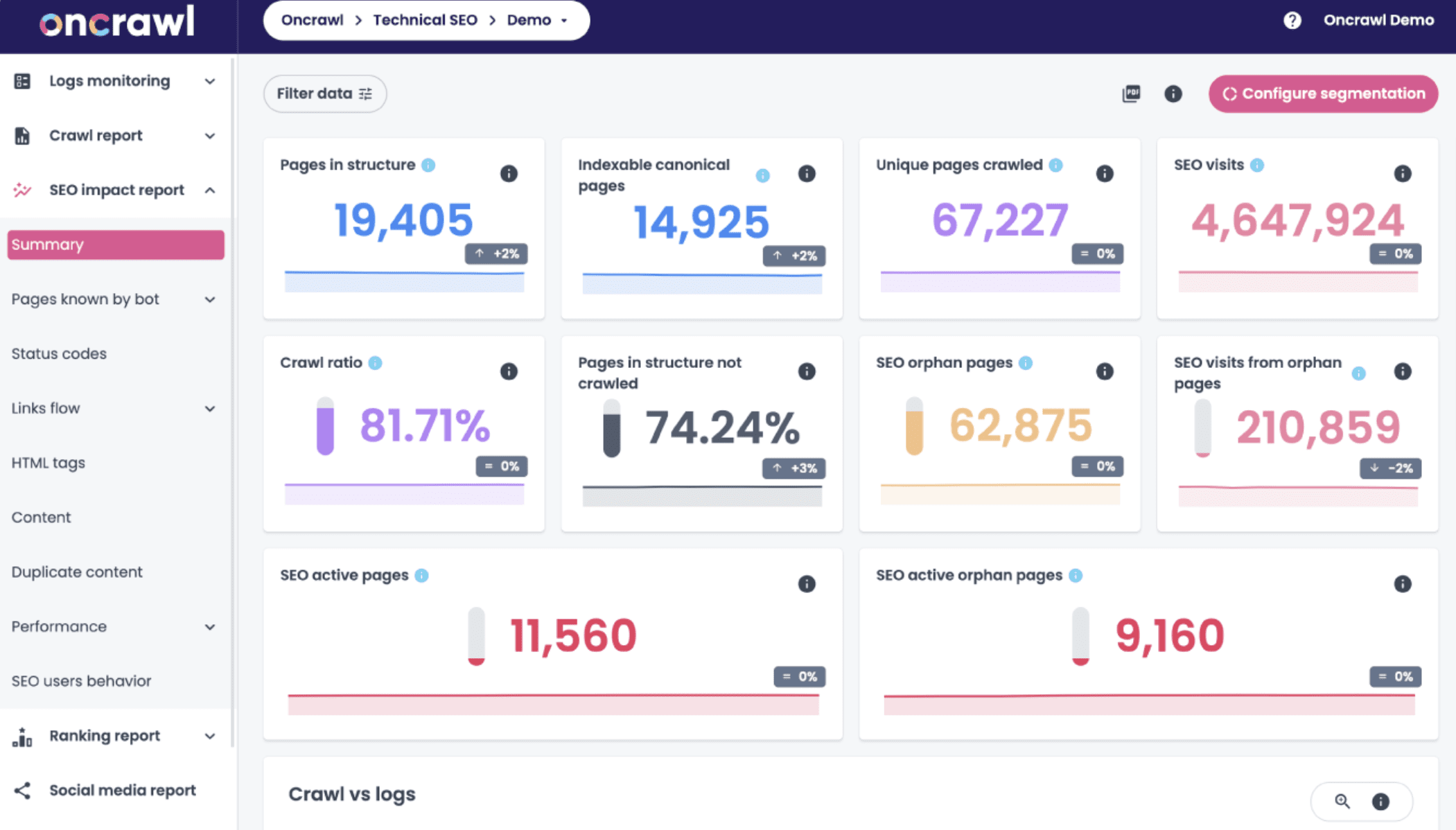Table of Contents
In the rapidly evolving digital landscape, staying ahead of the game is crucial for businesses looking to expand their online presence. As we approach 2024, an in-depth understanding of Technical SEO Audit Tools becomes increasingly vital in ensuring the health and success of your website. This comprehensive overview provides a detailed examination of the latest SEO tools, equipping you with the knowledge and insights necessary to optimize your site’s performance and achieve higher rankings in search engine results. With a focus on practicality and efficiency, these tools serve as indispensable assets for the discerning webmaster seeking to stay ahead of the competition.

Defining Technical SEO Audit Tools
Technical SEO audit tools are software applications or online platforms that are specifically designed to analyze and evaluate the technical aspects of a website for search engine optimization (SEO) purposes. These tools assist in identifying and resolving issues that may prevent a website from ranking higher in search engine results pages (SERPs) and ultimately improving its organic visibility.
Performing a technical SEO audit is crucial to ensure a website is optimized for search engines. It involves examining various technical factors that influence a website’s performance, including crawlability, indexability, site architecture, on-page optimization, mobile optimization, structured data, site speed, internal and external linking, XML sitemaps, security, and social sharing.
By conducting a technical SEO audit using these tools, website owners, SEO professionals, and digital marketers can gain valuable insights into their website’s technical health, identify areas for improvement, and implement necessary changes to enhance their website’s search engine visibility and overall performance. These tools provide comprehensive reports, analysis, and recommendations, helping users optimize their websites and stay ahead in the ever-evolving world of SEO.
Why Conduct a Technical SEO Audit?
Performing a technical SEO audit is essential for optimizing a website’s performance and ensuring its visibility in search engine results. Here are some reasons why conducting a technical SEO audit is crucial:
-
Identify Technical Issues: A technical SEO audit helps you identify any underlying technical issues that may be affecting your website’s search engine performance. It helps to uncover problems such as broken links, duplicate content, slow page speed, and crawlability issues that may hinder search engines from properly indexing your site.
-
Improve Website Usability: A well-executed technical SEO audit can help improve user experience by identifying areas where your website can be optimized for better usability. This includes factors like mobile responsiveness, clear site architecture, and intuitive URL structure.
-
Optimize for Mobile-First Indexing: As mobile usage continues to rise, search engines prioritize websites that are optimized for mobile devices. Conducting a technical SEO audit ensures that your website is mobile-friendly and optimized for mobile-first indexing.
-
Stay Ahead of Algorithm Updates: Search engines, such as Google, regularly update their algorithms to improve user experience and deliver better search results. Conducting a technical SEO audit allows you to keep up with these updates and make necessary adjustments to your website to stay relevant in search results.
-
Competitive Edge: With the help of technical SEO audit tools, you can gain deep insights into your competitors’ websites, identify their strengths and weaknesses, and leverage this information to improve your own website’s SEO strategy.
By conducting a technical SEO audit, you can address any technical issues, enhance your website’s performance, and ultimately improve its visibility and organic search rankings.

Key Elements of a Technical SEO Audit
A comprehensive technical SEO audit involves analyzing multiple key elements that affect a website’s search engine rankings and overall performance. Here are the key elements that are typically evaluated during a technical SEO audit:
Crawlability and Indexability
Crawlability and indexability refer to how search engine bots crawl and index a website’s pages. It is important to ensure that search engines can easily access and understand the content on a website. Factors to consider in this area include the website’s robots.txt file, XML sitemaps, and structured data.
Site Architecture and URL Structure
A well-structured website with clear and intuitive navigation plays a crucial role in both user experience and SEO. During a technical SEO audit, the website’s architecture, URL structure, internal linking, and breadcrumb navigation are evaluated to ensure they are optimized for both users and search engines.
On-Page Optimization
On-page optimization involves optimizing individual web pages to improve their search engine rankings and visibility. Elements such as meta tags, headings, content quality, keyword usage, and URL optimization are assessed during a technical SEO audit to ensure that on-page elements are optimized effectively.
Mobile Optimization
With the increasing use of mobile devices for internet browsing, mobile optimization is crucial. A technical SEO audit assesses a website’s mobile-friendliness, responsive design, page load speed, and mobile user experience to ensure optimal performance on mobile devices.
Structured Data and Schema Markup
Structured data and schema markup provide search engines with additional information about a website’s content, leading to enhanced visibility in search results. During a technical SEO audit, the presence and correct implementation of structured data and schema markup are examined and optimized.
Site Speed and Performance
Website speed and performance directly impact user experience and search engine rankings. A technical SEO audit evaluates factors such as page load time, server response time, caching, image optimization, and code optimization to ensure optimal website speed and performance.
Internal and External Linking
The quality and relevance of internal and external links on a website affect its SEO performance. During a technical SEO audit, the website’s internal linking structure, outbound links, broken links, and backlink profile are analyzed to identify any issues and improve link authority.
XML Sitemap and Robots.txt
XML sitemaps and robots.txt files are important for search engine crawlers to discover and understand a website’s pages. Technical SEO audit tools assess the presence and accuracy of XML sitemaps and robots.txt files to ensure optimal crawlability and indexability.
Security and HTTPS
Website security is crucial for maintaining user trust and search engine rankings. During a technical SEO audit, factors such as website security certificates (HTTPS), SSL/TLS encryption, and malware detection are examined and optimized to ensure a secure website.
Social Sharing and Open Graph Tags
Social sharing and Open Graph tags enable social media platforms to display website content correctly when shared. A technical SEO audit evaluates a website’s social sharing integration and the proper implementation of Open Graph tags to optimize social media visibility and sharing.
By conducting a comprehensive technical SEO audit and optimizing these key elements, website owners can enhance their website’s search engine performance and overall visibility.
Choosing the Right Technical SEO Audit Tool
Choosing the right technical SEO audit tool is crucial for conducting an effective audit and optimizing a website’s technical performance. Here are some factors to consider when choosing the right tool:
-
Functionality: Look for a tool that offers a comprehensive range of technical SEO auditing features, including site crawling, data analysis, reporting, competitive analysis, and keyword research.
-
Ease of Use: Opt for a user-friendly tool that is easy to navigate and understand, even for users with minimal technical knowledge.
-
Accuracy and Reliability: Ensure that the tool provides accurate and reliable data, analysis, and recommendations. Look for reviews and feedback from other users to assess the tool’s performance.
-
Integration and Compatibility: Consider whether the tool can integrate with other platforms and tools you use for SEO and digital marketing.
-
Scalability: Choose a tool that can accommodate websites of various sizes and complexities, whether you have a small personal website or a large e-commerce site.
-
Customer Support and Training: Look for a tool that offers reliable customer support, training resources, and documentation to assist you in optimizing your website effectively.
-
Pricing: Consider your budget and choose a tool that offers a pricing model that aligns with your needs and goals.
By considering these factors, you can select the right technical SEO audit tool that suits your requirements and helps you optimize your website effectively.

Overview of Top Technical SEO Audit Tools for 2024
As of 2024, several technical SEO audit tools have proven to be reliable and effective. Here is an overview of some top tools to consider:
1. Moz Pro
Moz Pro offers a comprehensive suite of SEO tools, including site auditing capabilities. It provides insights into crawlability, indexability, on-page optimization, site speed, and backlink analysis. The tool also offers recommendations for optimization and allows for tracking historical site audits.
2. SEMrush
SEMrush is a popular SEO tool that offers various features, including a technical SEO audit. It provides comprehensive website crawling, analysis of on-page factors, mobile optimization checks, and extensive data reporting. SEMrush also offers competitive analysis and backlink auditing capabilities.
3. Ahrefs
Ahrefs is an all-in-one SEO tool that offers a technical SEO audit feature. It includes website crawling, analysis of on-page factors, identification of broken links, mobile optimization checks, and comprehensive backlink analysis. Ahrefs provides detailed reports and recommendations for optimization.
4. Screaming Frog
Screaming Frog is a powerful website crawling tool that offers technical SEO auditing capabilities. It allows for comprehensive analysis of on-page factors, URL structure, internal and external links, structured data, and site performance. Screaming Frog offers detailed reports and is known for its scalability.
5. DeepCrawl
DeepCrawl is a cloud-based website analysis tool that provides comprehensive technical SEO auditing. It offers features such as website crawling, analysis of on-page factors, mobile optimization checks, XML sitemap auditing, and in-depth reporting. DeepCrawl is highly scalable and suitable for large websites.
6. Google Search Console
Google Search Console is a free tool offered by Google that provides insights into a website’s performance in Google search results. It offers basic technical SEO auditing features, including crawl errors, mobile usability, and sitemap submission. Google Search Console is particularly useful for monitoring a website’s performance on Google.
7. Bing Webmaster Tools
Bing Webmaster Tools is a free tool provided by Microsoft that offers similar features to Google Search Console. It provides insights into a website’s performance in Bing search results, including crawl issues, backlink analysis, and keyword research. Bing Webmaster Tools is essential for optimizing a website’s performance on Bing.
8. Sitebulb
Sitebulb is a comprehensive and user-friendly technical SEO auditing tool. It offers in-depth analysis of crawlability, indexability, on-page factors, structured data, and backlink analysis. Sitebulb provides detailed reports, data visualization, and recommendations for optimization.
9. SEO Spider
SEO Spider by Screaming Frog is a desktop-based tool that offers a wide range of technical SEO auditing features. It allows for in-depth crawling, analysis of on-page factors, URL structure evaluation, and comprehensive reporting. SEO Spider is known for its flexibility and scalability.
10. Ryte
Ryte (formerly OnPage.org) is a technical SEO auditing tool that offers website crawling, analysis of on-page factors, mobile optimization checks, and comprehensive reporting. It provides actionable recommendations for optimization and offers integration with other SEO tools and platforms.
These top technical SEO audit tools offer a range of features and functionalities to analyze and optimize a website’s technical performance. Choosing the right tool depends on your specific requirements, budget, and preferences.
Features to Look for in Technical SEO Audit Tools
When evaluating technical SEO audit tools, it is essential to consider the features they offer. Here are some key features to look for:
Comprehensive Website Crawling
A good technical SEO audit tool should offer comprehensive website crawling capabilities, allowing you to analyze all pages and resources on your website. It should identify and report on broken links, duplicate content, and other crawl issues.
Robust Data Analysis and Reporting
Look for a tool that provides in-depth data analysis and reporting. It should offer actionable insights into your website’s technical performance, including on-page factors, crawl errors, site speed, and mobile optimization. The tool should also generate comprehensive reports to help you track progress over time.
Keyword Research and Analysis
Keyword research is a fundamental aspect of SEO. A technical SEO audit tool should offer keyword research capabilities, allowing you to analyze keyword rankings, search volume, and competition. This feature helps you optimize your content and identify relevant keywords for your target audience.
Competitor Analysis
Understanding your competitors’ SEO strategies is crucial. Look for a tool that offers competitor analysis features, allowing you to compare your website’s performance against competitors. This feature helps identify areas where you can improve and highlights opportunities for optimization.
Backlink Analysis
Backlinks play a significant role in SEO. A technical SEO audit tool should offer backlink analysis capabilities, allowing you to evaluate the quality and relevance of your website’s backlink profile. This feature helps identify opportunities for acquiring high-quality backlinks and improving your website’s authority.
Site Audit History and Tracking
A tool that allows you to track and review your site audit history is valuable. It enables you to monitor changes over time, track progress, and identify areas for improvement. This feature helps you maintain and optimize your website’s technical health effectively.
Integration with Other Tools and Platforms
Consider whether the tool can integrate with other SEO tools and platforms you use. Integration allows for seamless data sharing and collaboration, enhancing your overall SEO workflow and productivity.
Customization and Flexibility
Look for a tool that offers customization options to tailor the audit process according to your specific needs. It should allow you to prioritize metrics and set custom rules for analyzing and reporting on technical SEO issues.
User-friendly Interface and Dashboard
A user-friendly interface and intuitive dashboard are crucial for efficient workflow and ease of use. Look for a tool that offers a clean, organized interface that allows you to navigate and understand the data and reports easily.
Customer Support and Training
Reliable customer support and training resources are essential when using a technical SEO audit tool. Look for a tool that offers responsive customer support, documentation, tutorials, and training materials to help you make the most of the tool’s features.
Consider these features when evaluating technical SEO audit tools to find the one that best suits your needs and helps optimize your website effectively.

Cost and Pricing Models of Technical SEO Audit Tools
Technical SEO audit tools offer different pricing models to accommodate different user needs and budgets. Here are the common pricing models:
Freemium
Some technical SEO audit tools offer a freemium model, where a basic version of the tool is available for free, with the option to upgrade to a paid version for access to advanced features and functionality. Freemium models are ideal for small businesses and individuals with limited budgets.
Monthly Subscription
Many technical SEO audit tools operate on a monthly subscription model, where users pay a fixed recurring fee to access the tool’s features and receive updates and support. Subscription models offer flexibility and scalability, making them suitable for both small and large businesses.
Pay-per-use
Some technical SEO audit tools offer a pay-per-use or pay-as-you-go model, where users are charged based on their usage and the features they access. This model is beneficial for users with sporadic usage patterns or those who need to perform occasional audits.
Enterprise Pricing
For larger businesses and agencies with complex technical SEO needs, some tools offer enterprise pricing models. These pricing models are tailored to the specific requirements of the organization and often include additional features, customization options, and dedicated support.
When choosing a technical SEO audit tool, consider your budget, the features you require, and the pricing model that aligns with your needs. It is also important to evaluate the value the tool provides in terms of improving your website’s technical SEO performance and achieving your business goals.
Case Studies: Successful Use of Technical SEO Audit Tools
To highlight the effectiveness of technical SEO audit tools, here are a few case studies showcasing successful use:
Case Study 1: Company A Increases Organic Traffic by 30%
Company A, an e-commerce website, experienced a significant drop in organic traffic. They utilized a technical SEO audit tool to identify the root cause. The tool’s comprehensive website crawling capabilities helped identify multiple issues, including broken links, slow page speed, and inefficient URL structure. By implementing the recommended changes, Company A saw a 30% increase in organic traffic within three months.
Case Study 2: Agency B Improves Client Rankings
Agency B, a digital marketing agency, used a technical SEO audit tool to assess their client’s website. The tool’s data analysis and reporting features helped identify crawl errors, on-page optimization issues, and mobile responsiveness problems. By addressing these issues and optimizing the website based on the tool’s recommendations, Agency B managed to improve their client’s search engine rankings and increase organic traffic by 20% within six months.
Case Study 3: Blog C Boosts Social Media Visibility
Blog C, a content-driven website, wanted to enhance its social media visibility. They utilized a technical SEO audit tool that provided social sharing and Open Graph tag analysis. By optimizing their website’s social sharing integration and implementing correct Open Graph tags, Blog C experienced a significant increase in content shares and engagement on social media platforms.
These case studies showcase how technical SEO audit tools can be instrumental in identifying and resolving technical issues, improving search engine rankings, and enhancing overall website performance.

Latest Trends in Technical SEO Audit Tools
As the field of SEO continues to evolve, technical SEO audit tools are constantly adapting to meet the latest trends and advancements. Here are some of the latest trends in technical SEO audit tools:
BERT and Natural Language Processing
With the introduction of Google’s BERT algorithm update, there is a growing emphasis on natural language processing in technical SEO audit tools. Tools now analyze content for relevance, context, and user intent to provide more accurate recommendations and optimization strategies.
Voice Search Optimization
Voice search is becoming increasingly popular, and technical SEO audit tools are adapting to this trend. Tools now evaluate a website’s voice search readiness by analyzing content structure, keyword usage, and schema markup for voice search optimization.
Mobile-First Indexing
Mobile-first indexing has become the standard for search engines. Technical SEO audit tools now prioritize mobile optimization checks, including mobile usability, responsive design, and page load speed, to ensure websites are mobile-friendly and optimized for mobile-first indexing.
Page Experience and Core Web Vitals
Google’s introduction of Core Web Vitals has added a new dimension to technical SEO audits. Tools now assess factors such as page load speed, interactivity, and visual stability to ensure a positive user experience and meet the Core Web Vitals standards.
Artificial Intelligence and Machine Learning
Artificial intelligence (AI) and machine learning (ML) are being integrated into technical SEO audit tools to provide more advanced and accurate analysis. AI and ML algorithms help identify patterns, analyze data, and make data-driven recommendations for website optimization.
These trends reflect the dynamic nature of the SEO landscape and the continuous improvements in technical SEO audit tools. By leveraging these trends, website owners can stay ahead of the curve and optimize their websites effectively.
Conclusion
In the evolving world of SEO, conducting a comprehensive technical SEO audit is essential for optimizing a website’s performance and improving its search engine visibility. Technical SEO audit tools provide valuable insights, analysis, and recommendations to address any technical issues and enhance a website’s overall health.
Choosing the right technical SEO audit tool depends on various factors, including functionality, ease of use, reliability, integration capabilities, and pricing. Considering these factors will help you select a tool that aligns with your needs and helps you optimize your website effectively.
Technical SEO audit tools offer a range of features, including website crawling, data analysis, reporting, keyword research, competitor analysis, and backlink analysis. These tools allow you to gain deep insights into your website’s technical health and make necessary optimizations.
Furthermore, the latest trends in technical SEO audit tools, such as BERT and natural language processing, voice search optimization, mobile-first indexing, page experience, and artificial intelligence, reflect the ongoing advancements and changes in the field of SEO.
By incorporating technical SEO audit tools into your SEO strategy and staying updated with the latest trends, you can improve your website’s search engine rankings, organic visibility, and overall performance in the highly competitive online landscape.



